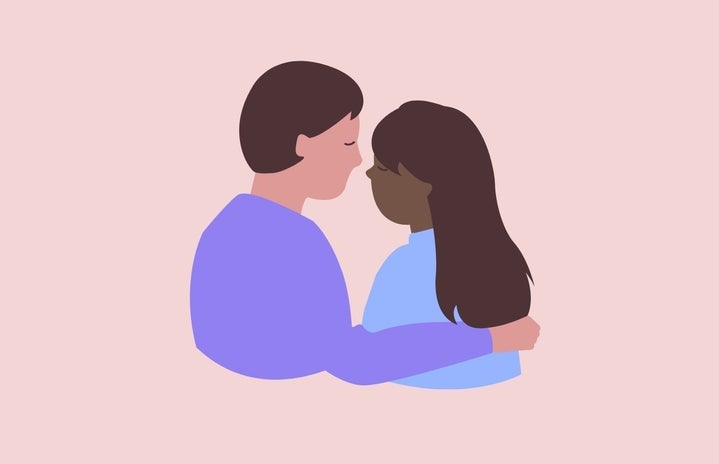On and off college campuses across the country, occurrences of rape and sexual assault are devastatingly prevalent. It is accurately estimated that 13% of all students experience rape and or sexual assault under nonconsenting, or other circumstances. Most frequently, women are victims of these instances with men experiencing them to a significant degree, as well as many other people that are impacted on a broader scale. Typical college life, (in addition to the getting an education part,) perpetuates a lifestyle consisting of meeting new people/having new experiences, partying, and commonly, dating or partaking in hookup culture. While these aspects are often expected to go on during the college period, their ingrained existence plays a catalytic role in the ubiquitousness of rape and sexual assault. There are many resources, prevention, and intervention measures out there that have a role in addressing and combating these terrible incidents. One to highlight is the organization It’s On Us.
It’s On Us is a movement that was founded in 2014 under the Obama-Biden administration. With many overarching objectives, a clear one is that the organization works to have every person be apart of the conversation in order to better educate and inform the public about stopping sexual assault and rape. More than 550 campuses nationwide have established chapters at their own schools respectively. This organization and many others like it are integral in today’s society. Here at the University of Utah, we have our own It’s On Us chapter which is the only one in the state of Utah actually. I had the chance to sit down with the president of the It’s On Us chapter of Utah, (who conveniently happens to be my roommate, Katelyn Gross,) to ask her some questions.
Q: Describe It’s On Us as a whole and how it has an important role on college campuses.
A: “It’s On Us on the University of Utah campus is a registered organization that works to combat sexual assault by creating a culture of consent. Our three main areas are prevention education, bystander intervention education, and supporting survivors. Through this, we hope to change the culture as a whole and to end sexual assault and rape on our campus.”
Q: Are there any key principles, objectives, or terms that It’s On Us emphasizes?
A: “The main goals of our organization are to recognize that non-consensual sex is sexual assault, to identify situations in which sexual assault may occur, and to intervene in situations where consent has not been given or cannot be given. This may hopefully create an environment where assault is unacceptable and where it can be made sure that survivors are supported and that they have access to necessary resources. One by one we can help to combat the issue.”
Q: So far this year, what have you guys done on campus, or what’s been done to further raise awareness?
A: “During our fall Week of Action this past month of October we had five successful events, two of which were based around social media and mainly concerned taking the pledge of action and posting about it. Our other events covered supporting LGBTQ+ survivors, the legal side of sexual assault having to do with reporting, and a forum on prevention and what measures need to be taken. We collaborated with the McCluskey Center for Violence Prevention that was created this year, the Center for Student Wellness, and the fraternity Beta Theta Pi, along with others off-campus during that week. There is both a fall and spring Week of Action held by It’s On Us nationally every year.”
Q: What is it like to be the president of an organization on a college campus?
A: “It’s amazing to surround myself with people who have similar values and beliefs that I do and that want to make a difference. It’s inspiring to be a part of the work that multiple students are doing in working towards a common goal. This year it is difficult given the Covid-19 pandemic and having everything be online but whether school is in person or not, there are still cases of assault among other things happening. We still need to connect and plan how we’re going to do the work to make the U a safer school.”
Q: Is there any particular significance and meaning that It’s On Us has to you?
A: “As a social work major I’ve always been passionate about creating a change and I believe in working with the population of college students and sexual assault is a really unique perspective. I feel like as college students we are often overlooked and our problems don’t always measure up in the grand scheme of things, so issues can maybe be cast off. I’ve always been involved in anti-violence movements such as Dressember where I wear a dress every day of December to raise awareness for sex-trafficking because whether it’s sex-trafficking or sexual assault your body and freedoms can be taken from you or violated. It can have lasting impacts on a person in any of these circumstances like rape, assault, sex-trafficking, or relationship violence. My freshman year Lauren McCluskey was murdered on campus and that made me realize how big of an issue this sort of stuff is, that people don’t really recognize. Even somebody like Lauren who was a beloved student-athlete and person can still experience this degree of violence. It’s important for us all to understand consent and that coercion is not consent, that’s one of the big things that we’re talking about this year. We need to respect others and what they say and want to do with their own bodies.”
Q: As the University of Utah is associated with tragic cases such as the devastating deaths of former students like the late Lauren McCluskey and Mackenzie Lueck, does your chapter feel a stronger sense of urgency, specifically, due to the campus climate?
A: “I would say absolutely. It’s definitely the leading passion of my presidency and especially for cases like Mackenzie Lueck’s who wasn’t on campus at the time of her death, action, and justice for her takes precedence. People in general, students, even potential future students felt the impact of her death and the repercussions similar to Lauren McCluskey. With all of the lawsuits, news articles, and the terrible acts and mishandling of the entire situation by the University Police during her case, it is our job as students to try and help. Faculty and staff need to understand that we are not okay with this and won’t stand idly by and watch things happen to our fellow students and in Lauren’s tragic case of being murdered. It is very important that our university combats issues like this at the source before bad things happen. After her death, based off of our campus climate survey, trust in the university and the perceptions of campus safety decreased drastically. It has taken a severe situation like that for administration to wake up to the problems and listen to students.”
Q: What will define, or set your legacy apart after being a leader on campus?
A: “I hope to inspire current and future students to continue the work that we’re doing in creating the cultural shift towards respect and consent. I hope that the people I work with and people that are impacted by sexual assault recognize the passion that I have and my dedication to making campus a safer place, whether it’s here in Utah or across the nation. I intend on continuing this work throughout my career as a social worker and I’ll use my experiences here for the rest of my career.”
Q: How can students and others get involved as well as what role can they have?
A: “While we already have our members selected for the core team this year, applications to join go out in August every year. So, if you’re interested in joining the club as a more active member you can definitely wait until the applications go live next year. As of right now you can join us on Campus Connect and can possibly help with any events we have coming up. The most important things that you can do to join the It’s On Us movement are to go online to take the pledge against sexual assault and to commit to being an active bystander if need be, while always respecting consent and not perpetrating any acts of sexual violence.”
This interview was very telling and informative about a national movement, being It’s On Us and how it is impactful and functions on the University of Utah campus specifically. Hopefully, you feel encouraged, as many others have, to take the pledge, be an active bystander if ever necessary, and to be a part of the solution in dismantling rape and sexual assault culture and in stopping its occurrence. A culture characterized by safety and consent does not have to be visionary and not limited to college campuses for that matter. Similar to a lot of other things, a vast problem such as this one takes us all individually being properly educated and taking action whenever possible.
It’s On Us, like other organizations and resources, deserves much recognition and requires assistance from us all to help raise awareness in ending the prevalence of sexual assault, rape, relationship violence, and more.



